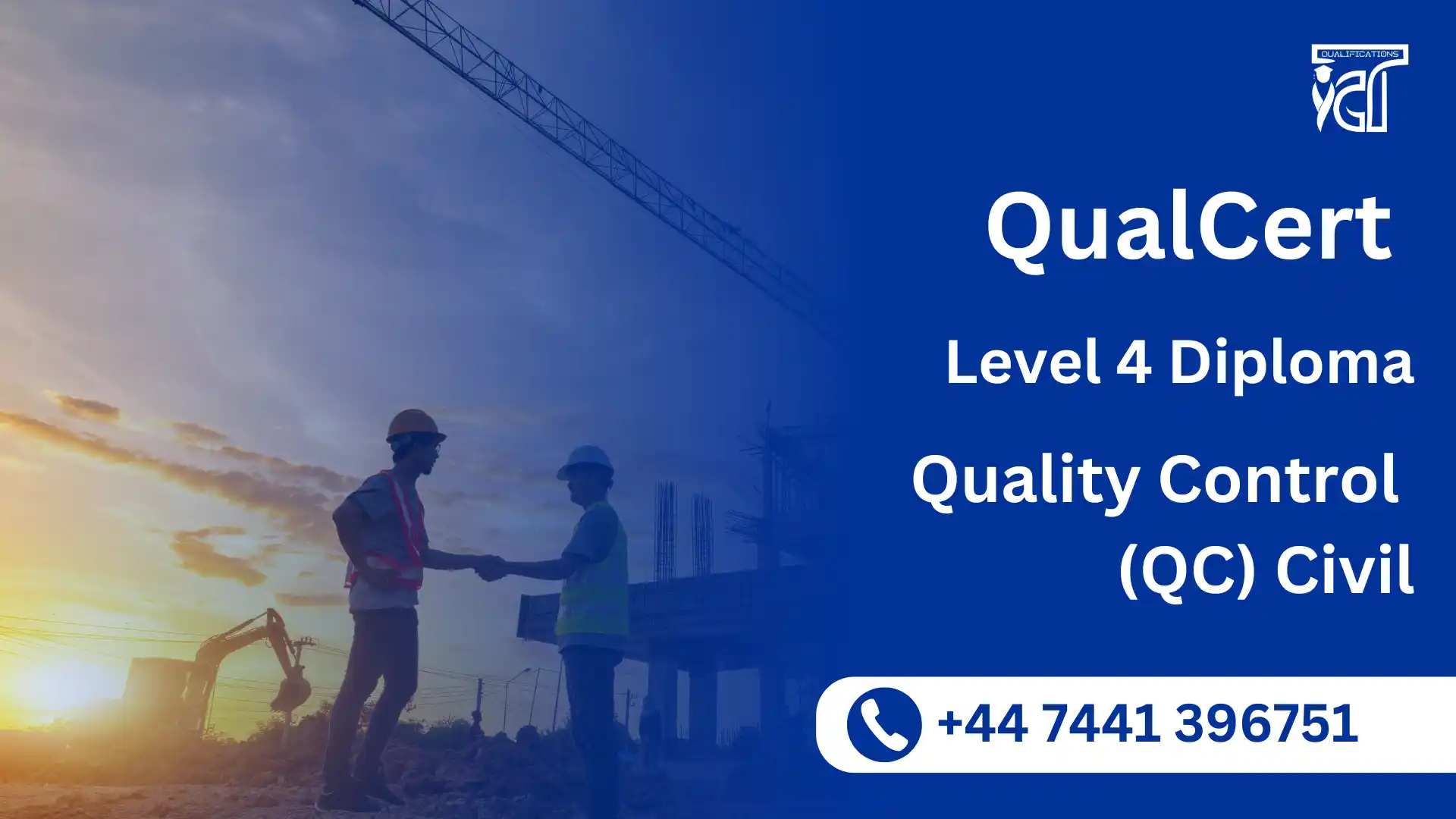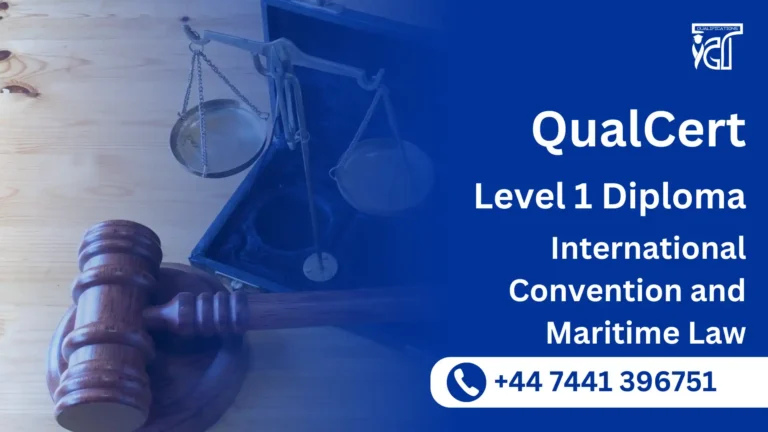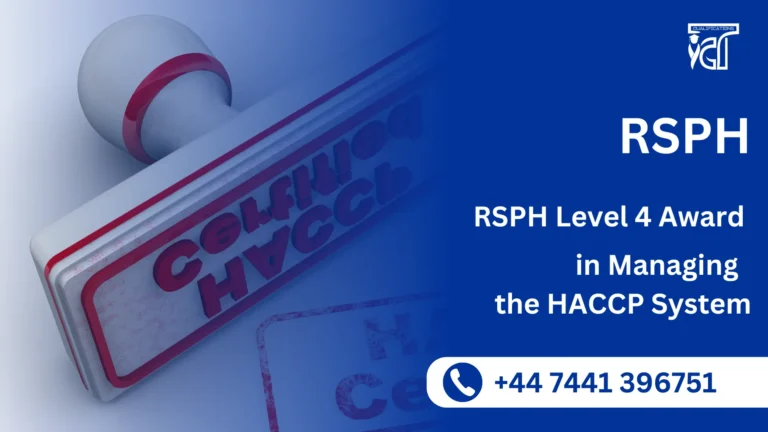The QualCert Level 4 Diploma in Quality Control (QC) – Civil is a comprehensive qualification designed to equip learners with essential knowledge and practical skills in quality control within civil engineering and construction environments. This program provides a strong foundation in the principles of QC, including material testing, site inspection, documentation, and compliance with relevant construction standards and specifications.
Ideal for early-career professionals, technicians, and site personnel, this diploma focuses on the application of quality procedures to ensure that construction projects meet regulatory, safety, and performance standards. The course emphasizes hands-on learning, enabling participants to contribute effectively to quality assurance processes in various civil engineering projects such as buildings, roads, bridges, and infrastructure works.
Whether you are looking to start a career in construction quality control or build upon existing site experience, this Level 4 diploma offers the tools and technical competencies needed to support quality-focused roles and progress within the industry.
QualCert Level 4 Diploma in Quality Control ( QC ) Civil
The QualCert Level 4 Diploma in Quality Control (QC) Civil is structured to provide a comprehensive foundation in quality control practices specific to civil engineering. Below is the qualification structure, including the Total Qualification Time (TQT) 450, Guided Learning Hours (GLH) 270, and 72 Credits associated with the program.
| Unit Ref# | Unit Title | Credit | GLH | TQT |
| QC090010 – 1 | International QC Standards and Compliance | 12 | 45 | 75 |
| QC090010– 2 | Advanced Quality Audits and Reporting | 12 | 45 | 75 |
| QC090010– 3 | Application of Lean and Six Sigma in QC | 12 | 45 | 75 |
| QC090010– 4 | Managing Large-Scale Civil QC Programs | 12 | 45 | 75 |
| QC090010– 5 | Sustainability and Green Construction Standards | 12 | 45 | 75 |
| QC090010– 6 | Leadership and Ethics in Quality Control | 12 | 45 | 75 |
GLH (Guided Learning Hours) and TQT (Total Qualification Time) are terms commonly used in vocational qualifications to help define the amount of time a learner is expected to spend on their studies.
1. GLH (Guided Learning Hours)
GLH refers to the number of hours a learner spends being directly taught, supervised, or supported during their course. This includes the time spent in activities such as:
- Classroom instruction
- Practical workshops
- One-on-one tutoring or mentoring sessions
- Online learning sessions with tutor support
In other words, GLH represents the time that learners are actively engaged with their instructors or learning activities.
2. TQT (Total Qualification Time)
TQT represents the total amount of time a learner is expected to invest in completing a qualification, including:
- GLH (Guided Learning Hours): Time spent on direct learning, as explained above.
- Self-Directed Learning: This includes time spent on independent study, research, assignment completion, preparation for exams, and any other work the learner does outside of direct teaching hours.
TQT is a broader measure that includes all the time required to achieve the qualification. It helps learners and employers understand the overall commitment required for the qualification.
Key Differences Between GLH and TQT:
- GLH focuses on direct learning with guidance or supervision.
- TQT includes GLH as well as independent study time and other learning-related activities.
Example:
If a qualification has a TQT of 600 hours and a GLH of 250 hours, it means the learner should spend 250 hours in direct learning (classroom, online, or tutor-led sessions) and 350 hours on independent study or research.
1. International Standards and Regulatory Compliance
- Explore key international quality control standards and frameworks relevant to civil engineering, such as ISO 9001 and ASTM.
- Understand how global compliance requirements affect project planning, execution, and reporting.
- Learn to develop effective strategies for ensuring alignment with international regulations and quality benchmarks.
2. Advanced Quality Auditing and Reporting Techniques
- Gain hands-on skills to plan, conduct, and evaluate advanced quality audits in civil construction projects.
- Learn to interpret audit findings and compile detailed reports for internal teams and external stakeholders.
- Apply a range of quality assessment tools to real-world scenarios for continuous process improvement.
3. Implementing Lean and Six Sigma in Civil QC
- Understand the core principles of Lean and Six Sigma within the context of construction quality control.
- Apply process optimization techniques to reduce waste and enhance efficiency in civil engineering workflows.
- Utilize data-driven tools to support continuous improvement and quality enhancement initiatives.
4. Managing Multi-Project QC Programs
- Build the capabilities required to oversee large-scale quality control initiatives across various civil projects.
- Learn effective resource planning, team coordination, and performance monitoring techniques.
- Ensure consistent implementation of quality standards and policies across diverse construction environments.
5. Sustainability and Environmental Standards in QC
- Examine the growing role of sustainability in civil construction and its integration into quality control systems.
- Learn how to embed green building practices and environmental standards into QA/QC procedures.
- Assess the impact of sustainable design and construction on overall project quality and compliance.
6. Leadership and Ethical Practices in Quality Management
- Promote a culture of integrity, transparency, and accountability within quality management operations.
- Develop the leadership skills needed to guide and motivate QC teams in the field.
- Understand ethical considerations and professional responsibilities in decision-making and quality assurance.
Solid Foundation in Civil Quality Control
Gain essential knowledge and practical skills to implement and support quality control procedures in civil engineering and construction environments.
Career Entry into QA/QC Roles
Open pathways to roles such as Quality Control Technician, Site QC Assistant, Civil QA Inspector, or Quality Documentation Officer in construction projects.
Understanding of Global QC Standards
Learn how to work with internationally recognized quality standards such as ISO 9001, ASTM, and ACI, making your skills relevant worldwide.
Practical Application of QC Tools
Develop hands-on expertise in material inspection, non-conformance reporting, site audits, and compliance documentation.
Preparation for Higher-Level Qualifications
Acts as a stepping stone to more advanced qualifications, including Level 5 and Level 6 Diplomas in Quality Control or related fields.
Increased On-Site Efficiency and Compliance
Learn how to reduce defects, ensure proper documentation, and enhance construction quality across various project phases.
Awareness of Green Construction Standards
Understand how sustainability and environmental considerations affect quality assurance in civil engineering projects.
Enhanced Communication and Reporting Skills
Improve your ability to report on quality metrics, interpret audit results, and communicate effectively with engineers, managers, and clients.
Applicable Across Civil Engineering Projects
Suitable for professionals working in infrastructure, roadworks, residential, and commercial civil projects.
Boosts Employability in the Construction Sector
Gain a recognized qualification that adds credibility to your profile and improves your job prospects in the competitive construction and engineering industries.
The QualCert Level 4 Diploma in Quality Control (QC) – Civil is tailored for individuals who are ready to build a solid foundation in quality control practices specific to civil engineering and construction. The ideal learner for this course is someone who:
- Is Starting a Career in Construction or Engineering
- New entrants to the civil engineering or construction industry looking to specialize in quality control roles.
- Has a Technical or Vocational Background
- Learners with a high school diploma, technical training, or prior vocational education in civil engineering, construction, or a related field.
- Aspires to Work in QC/QA Roles
- Individuals aiming for job roles such as Quality Control Assistant, QA Technician, Site Inspector, or Quality Documentation Clerk.
- Has Basic On-Site or Practical Experience
- Construction workers, site helpers, or assistants who have gained some experience in site operations and wish to formalize their knowledge with a qualification.
- Seeks Skill Development in QC Tools and Practices
- Those interested in learning practical skills like inspection procedures, audit reporting, and quality compliance.
- Is Detail-Oriented and Process-Driven
- Individuals who are naturally focused on accuracy, consistency, and following structured procedures in construction work.
- Wants to Improve Employability
- Learners looking to gain a recognized qualification to enhance job opportunities in construction and engineering sectors.
- Plans to Progress to Higher-Level Diplomas
- Ideal for candidates intending to pursue further study in Quality Control, Quality Assurance, or Civil Engineering at Level 5 and beyond.
- Prefers Practical, Application-Based Learning
- Those who benefit from real-world examples, case studies, and hands-on tasks related to construction quality standards.
- Is Committed to Professional Development
- Motivated individuals who value continuous improvement and are eager to contribute to the delivery of safe, high-quality construction projects.
Entry Requirements
Register Now
Qualification Process
Qualification Process for the QualCert Level 4 Diploma in Quality Control (QC) Civil
- Self-Assessment:
Begin by evaluating your eligibility to ensure you meet the qualification requirements, including work experience, knowledge, and language proficiency. - Registration:
Complete your registration by submitting the required documents, including a scanned copy of a valid ID, and paying the registration fee. - Induction:
An assessor will conduct an induction to confirm your eligibility for the course and explain the evidence requirements. If you do not meet the criteria, your registration will be canceled, and the fee will be refunded. - Assignmnets & Evidence Submission:
Provide all assignmnets and the necessary evidence based on the assessment criteria outlined in the course. If you are unsure of the required evidence, consult with the assessor for guidance on the type and nature of evidence needed. - Feedback and Revision:
The assessor will review your submitted evidence and provide feedback. Evidence that meets the criteria will be marked as “Criteria Met,” while any gaps will be identified. You will be asked to revise and resubmit if needed. - Competence Evidence:
Submit final evidence demonstrating that all learning outcomes have been met. This evidence will be marked as “Criteria Met” by the assessor once it is satisfactory. - Internal Quality Assurance (IQA):
The Internal Quality Assurance Verifier (IQA) will review your evidence to ensure consistency, quality, and compliance with standards. - External Verification:
The IQA will submit your portfolio to QualCert External Quality Assurance Verifiers (EQA) for final confirmation. The EQA may contact you directly to verify the authenticity of your evidence. - Certification:
Upon successful completion of all checks, QualCert will issue your official certificate, confirming that you have attained the QualCert Level 4 Diploma in Quality Control (QC) Civil.







